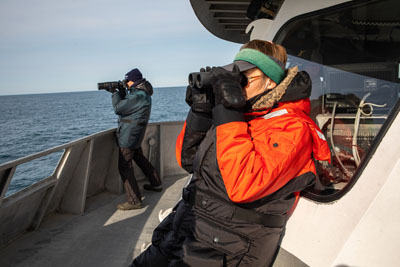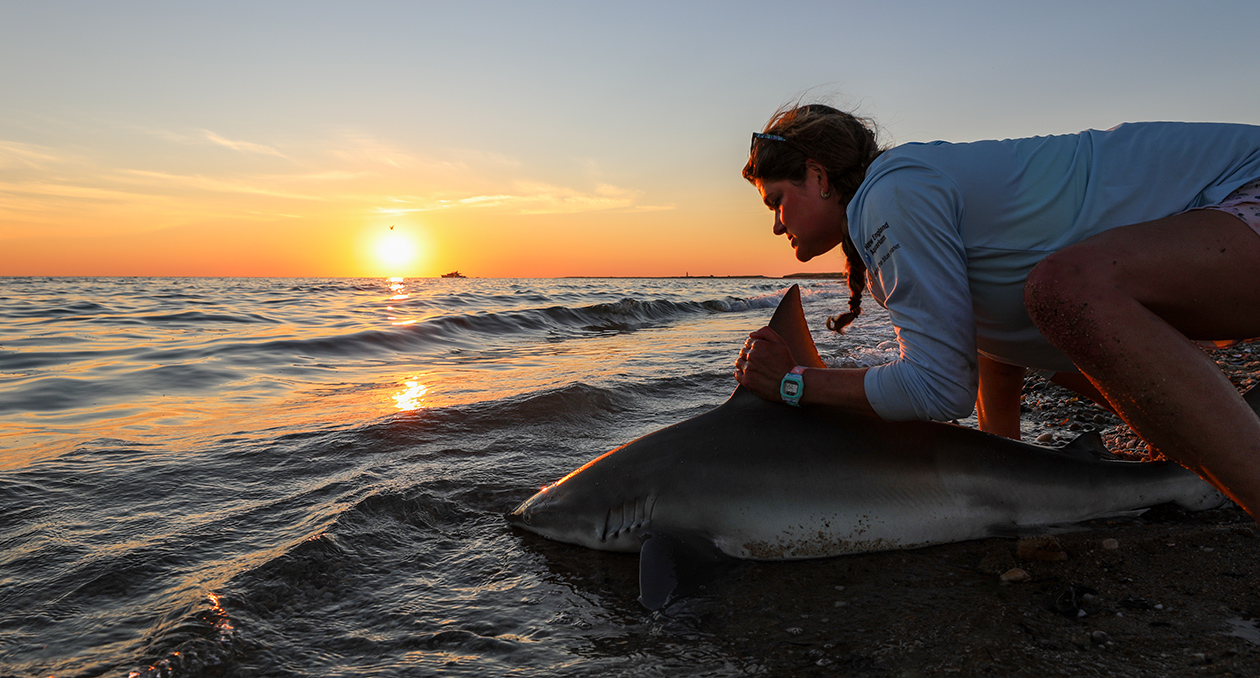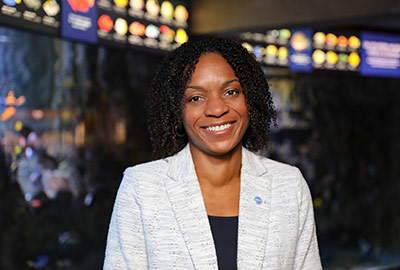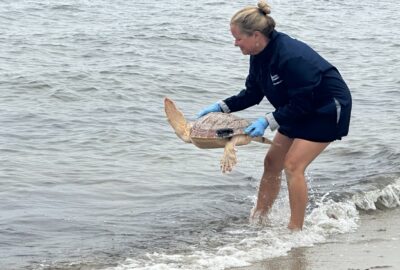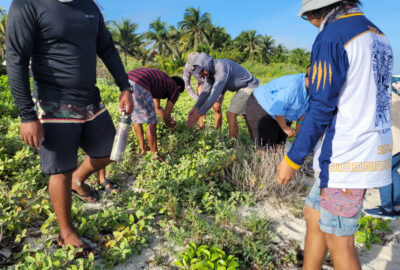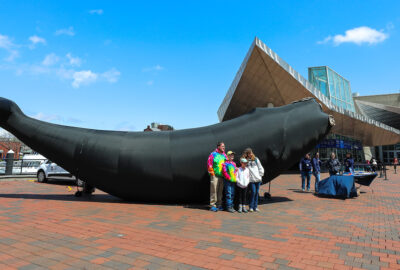Thank you for joining us at this special event. Please explore this page to learn more about the research and conservation work you have heard about tonight.
About Our Team
Learn more about the team sharing our work with you.
Effects on Sharks Caught and Released from Fishing Gear
Many sharks are caught as bycatch in commercial and recreational fishing and are discarded back into the ocean. Anderson Cabot Center scientists monitor the mortality rate among fish that are discarded, and use that data to inform best practices in order to improve the sharks’ survival rates.
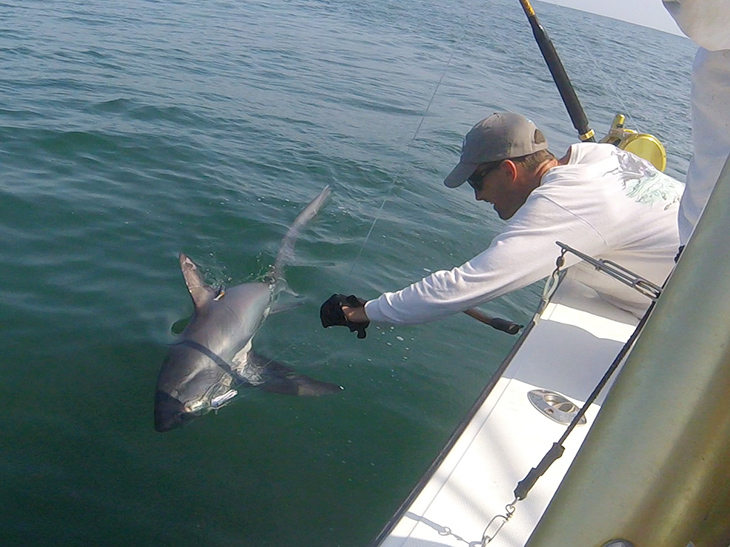
Anderson Cabot Center for Ocean Life
The Anderson Cabot Center for Ocean Life at the New England Aquarium is composed of more than 40 world-class marine scientists, public policy professionals, and technical specialists who have devoted their careers to improving ocean health.
